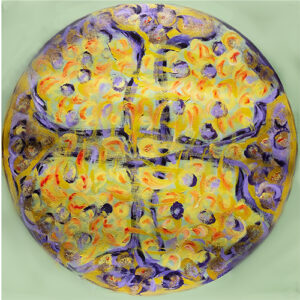 This past year was arguable the worst of my life. While Covid and accompanying restrictions have been unpleasant at best, what unfolded for my family was/is far harder. I’ve had two family tragedies, one in my extended family that is not mine to share; the other, sadly, is. On June 26, 2020, my five-year-old granddaughter, Lillian Grace, had a tragic accident near Parry Sound that resulted in her death. She was my son’s only child. This has been devastating for him and his wife, and riveting for our family. My daughter’s daughter who is 4 months older, was her best friend.
This past year was arguable the worst of my life. While Covid and accompanying restrictions have been unpleasant at best, what unfolded for my family was/is far harder. I’ve had two family tragedies, one in my extended family that is not mine to share; the other, sadly, is. On June 26, 2020, my five-year-old granddaughter, Lillian Grace, had a tragic accident near Parry Sound that resulted in her death. She was my son’s only child. This has been devastating for him and his wife, and riveting for our family. My daughter’s daughter who is 4 months older, was her best friend.
Partly as a result of this life-altering event, but also for the following reasons, I have not been afraid of Covid. I feel that for many, the fear generated by government and voices from health care have probably made things worse than was necessary. How so? Even before my granddaughter’s death, my pandemic response was “I’m old enough to die!” I say this for its shock value. However, it is true.
Having spent much of my career in the area of death and dying, I am aware of how death is seen by many in the health care system, as failure. Before the ‘first wave’, we knew of the decades-old problems in our long-term care settings. We have not had the political will to improve what has long been a deplorable situation: not enough staff, staff undertrained and underpaid, staff with no paid sick time, staff with no benefits, staff without full-time jobs. Worse yet, the families of residents, who until now have been important adjuncts to their loved-one’s physical care – including the profound human need for human touch and contact, are mostly banned from visiting.
Like most of us early in the pandemic, I followed guidelines not to see or hug my family. That fell apart on Mother’s Day when my daughter arrived at the door to drop off flowers. I read her card, began to cry, and spontaneously gave her a big hug. From there is a short distance to hug her daughter and husband.
Two weeks before Lilly died, we had a properly-social-distanced backyard birthday party after months of separation. I hugged her for the first time in over three months. When she died two weeks later, those of us who gathered at the hospital and in the days following, hugged with abandon. When there are no words to express the deepest of feeling, there are only hugs.
I also acknowledge that I do not live in one of the Covid “hot-spots” of transmission, areas that include ‘essential services’ such as the large Amazon distribution center in Peel, where workers, precariously employed, perhaps part-time, often of racial and ethnic minorities, are afraid to take time off work when sick, and are living in multi-generational residences. How is it that one of the “biggest national Amazon warehouses” in Peel can be considered an “essential service?” How does the Ford government expect us to respect and take seriously the current lockdown when such facilities not only stay open, but are clearly “super-spreaders” of Covid?
Sick pay and benefits are the very things enjoyed by those fortunate enough to be working from home, able to enjoy the “luxury of amazon delivery” in order to “stay safe”. While I have never and will never order through Amazon, I am in the privileged position that I could should I want to.
So, what has/is getting me through my multi-faceted grief? For years in my teaching of spiritual practices, I have said that whatever they are for each of us, these practices need to become part of our life so that when we really need them they are in place. More than ever before mine are sustaining me. My motivation in writing this is to suggest that whatever spiritual practices you can muster to care for yourself, commit to them. There is an energy, call it ‘spirit’, call it ‘love’ (or Buddha, Jesus…). It asks only that I show up, acknowledge its presence, and ‘bask’ in it, asking only for more of it to fill me – and when I pray for others, to fill them also. Did I also say my spiritual practices include regular exercise and hugs?
I love this prayer/poem and encourage you to re-write it for yourself:
I wear prayers like shoes
Pull them on quiet each morning
To take me through the uncertain day
Don’t know what might knock me off course
Sit up in bed, pull on the right, then the left
Before shower before teeth
They were my mama’s gift to walk me through this life.
She wore strong ones
The kind steady your ankles,
I know cause when her man left,
Her children gone
Her eldest son without goodbye
They the only ones keep her standing
I saw her still standing
Mama passed on some things to me
My smile, sense of discipline, my subtle behind
But best she passed on
“Girl you go to God and get you some good shoes,
cause this life ain’t steady ground.”
Now I don’t wear hers
You take them with you, you know
But I suspect they made by the same company
Pull them on each morning
First the right, then the left
Best piece of dress I got.
By Ruth Forman
From Prayers Like Shoes (Whit Press, © 2009 Ruth Forman)


 Prior to the current days of isolation, in my Spiritual Companioning practice, I met with some folks at a distance, on Facetime. My sessions begin with a time of guided prayer. I use a book by Joyce Rupp as a resource. Recently, with someone I usually meet in person, it happened that Rupp’s 10-line prayer for the day was based on the second verse of Psalm 121. Even though I had looked at the prayer before our meeting, I had not noticed its source text until I picked it up to read with my client. I was suddenly overcome with tears. Psalm 121 was my father’s favourite Psalm. I had to stop reading. I did something I promised myself I would never do again. I apologized for my tears.
Prior to the current days of isolation, in my Spiritual Companioning practice, I met with some folks at a distance, on Facetime. My sessions begin with a time of guided prayer. I use a book by Joyce Rupp as a resource. Recently, with someone I usually meet in person, it happened that Rupp’s 10-line prayer for the day was based on the second verse of Psalm 121. Even though I had looked at the prayer before our meeting, I had not noticed its source text until I picked it up to read with my client. I was suddenly overcome with tears. Psalm 121 was my father’s favourite Psalm. I had to stop reading. I did something I promised myself I would never do again. I apologized for my tears.